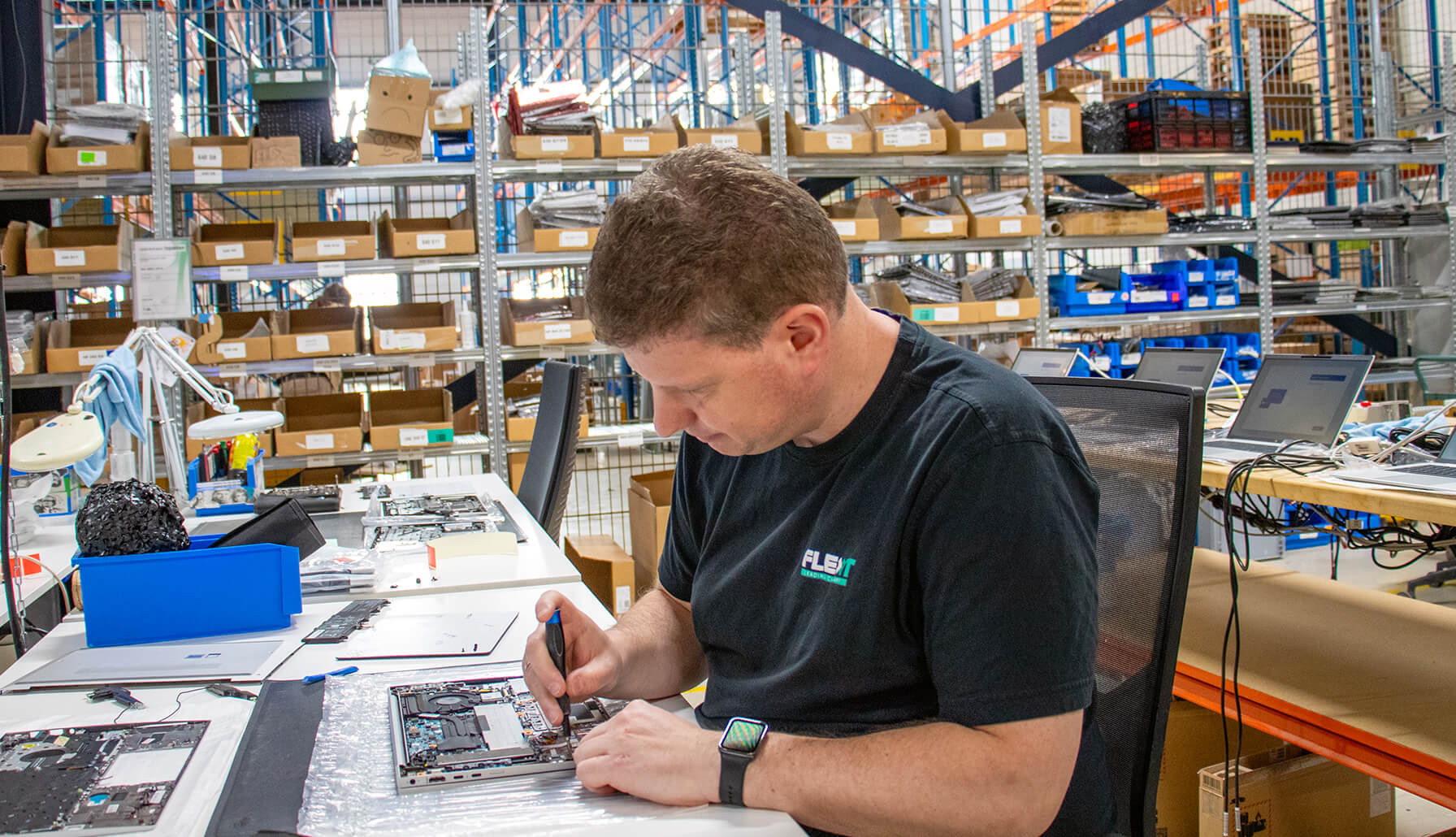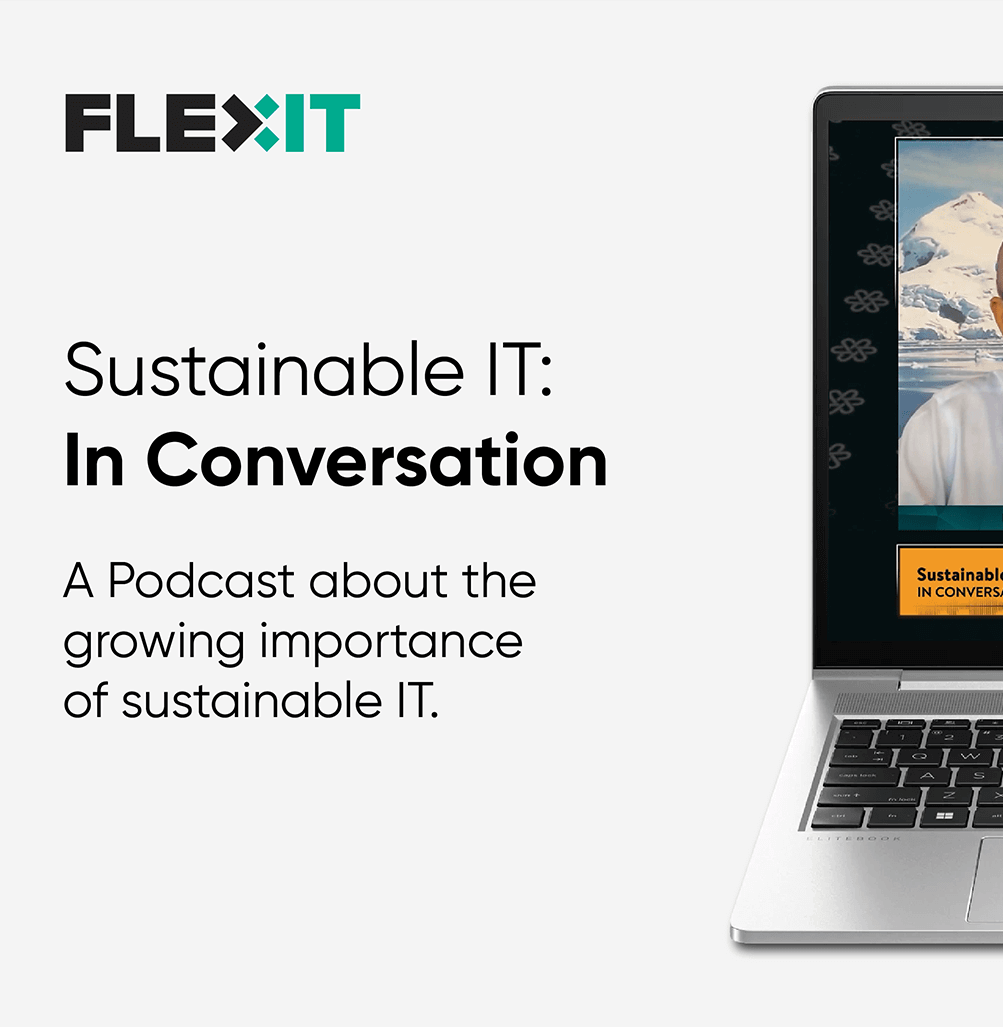Why renting IT hardware can be a smart choice for businesses
Why renting IT hardware can be a smart choice for businesses
Currently for businesses, every penny counts. With often limited resources, companies must make strategic decisions about how to achieve maximum growth and profitability within their budget. One crucial area where businesses can focus on, is purchasing hardware, such as laptops, smartphones, and other equipment necessary for day-to-day operations. While owning hardware may seem like the obvious choice, it might not always be the best fit for businesses. Alternatively, renting hardware can provide a range of benefits. In this article, we delve into four characteristics that may prompt businesses to contemplate renting their IT hardware instead of purchasing it, and how this approach can set them up for long-term success.
1. Flexibility and scalability
Businesses can gain significant advantages in terms of flexibility and scalability when renting IT hardware. Hardware rental allows businesses to be more flexible in their technology needs. As requirements change, such as scaling up or down operations, adapting to new markets or clients, or pivoting to a different strategy, a rental solution enables for quick and easy adaptation of changing technology needs. This is because rental agreements can be adjusted, upgraded or downsized, or equipment can be swapped out as per needs. Thus, businesses don’t have to worry about being locked into long-term purchases that they may not need in the future.
Hardware rental also enables easy scalability in technology infrastructure. Since rental solutions allow businesses to quickly acquire the equipment, they can grow their operations without having to make an upfront investment. This is particularly useful for startups and small businesses that may have limited funds or need to be nimble in response to internal changes and market developments.

Rental solutions enable quick and easy adaptation to changing technology needs.
2. Reducing CapEx and OpEx
Renting IT hardware can reduce CapEx (capital expenditure), which refers to business expenditures on long-term assets such as equipment and property. When renting hardware, businesses don’t have to make a large upfront investment. Instead, they can pay for the hardware on a weekly, monthly or quarterly basis, which helps them to conserve their capital for other investments or expenses.
In addition, renting IT hardware can also help businesses manage their OpEx (operating expenditure), which refers to the day-to-day costs such as rent, salaries, and utilities. When businesses purchase hardware outright, they also must budget for ongoing maintenance and upgrades, which could be unpredictable. In contrast, when renting, the rental company typically takes care of the maintenance, upgrades, and replacements as part of the rental agreement. This enables businesses to manage their OpEx more effectively by reducing unexpected expenses and allowing them to budget more accurately.
3. The latest equipment specified to your wishes
When renting IT hardware, you can choose equipment that is tailored to specific needs. This means that businesses can select equipment that meets their specific requirements, such as processing power, storage capacity, or graphics capabilities. This is particularly useful if they have specialized needs or require high-performance equipment for specific tasks, as they can ensure that they have the equipment they need to perform at their best. Renting also gives access to the latest devices available on the market. Rental companies generally have access to the latest equipment from leading manufacturers, which means that businesses can take advantage of new models without having to make a significant investment. This is beneficial for businesses that require cutting-edge technology to stay competitive or keep up with industry standards and this includes benefits from ongoing upgrades and replacements. Rental companies usually replace equipment when it becomes outdated or when a newer model becomes available, giving businesses access to the latest equipment without having to worry about the costs associated with upgrading or replacing it themselves. In addition, you can expect a short delivery time as lead times are often longer when purchasing IT hardware.

Renting IT hardware can reduce both capital and operating expenditures.
4. Try and buy
Trying equipment before making a purchase, is another positive characteristic of renting IT hardware. Often, rental agreements involve short-term rental periods, which allow businesses to test out the equipment and evaluate whether it meets their specific needs. This means that businesses can avoid purchasing equipment that may not perform as expected or doesn’t meet their specific requirements. Many rental companies offer a try-and-buy option, which allows businesses to rent the equipment for a specified period and then purchase it if they decide they want to keep it. This is ideal for businesses that want to test the equipment in real-world conditions before committing to a purchase.
At the end of the day, every business is unique and has its own specific requirements. By carefully evaluating their technology needs, taking their budget in account and considering the advantages of hardware rental, businesses can make informed decisions about their IT investments and position themselves for long-term success. Read more about the possibilities of IT hardware rental here.







